When our emotions dictate what we eat
Source : Nutriactis/Rouen-Normandie hospital
What is emotional eating?
The concept of emotional eating is defined as a tendency to modulate food intake in response to negative emotions such as anxiety or fear, or positive emotions such as joy or reward, rather than in response to the biological stimuli that characterize physical hunger.

Physical hunger and emotional hunger?
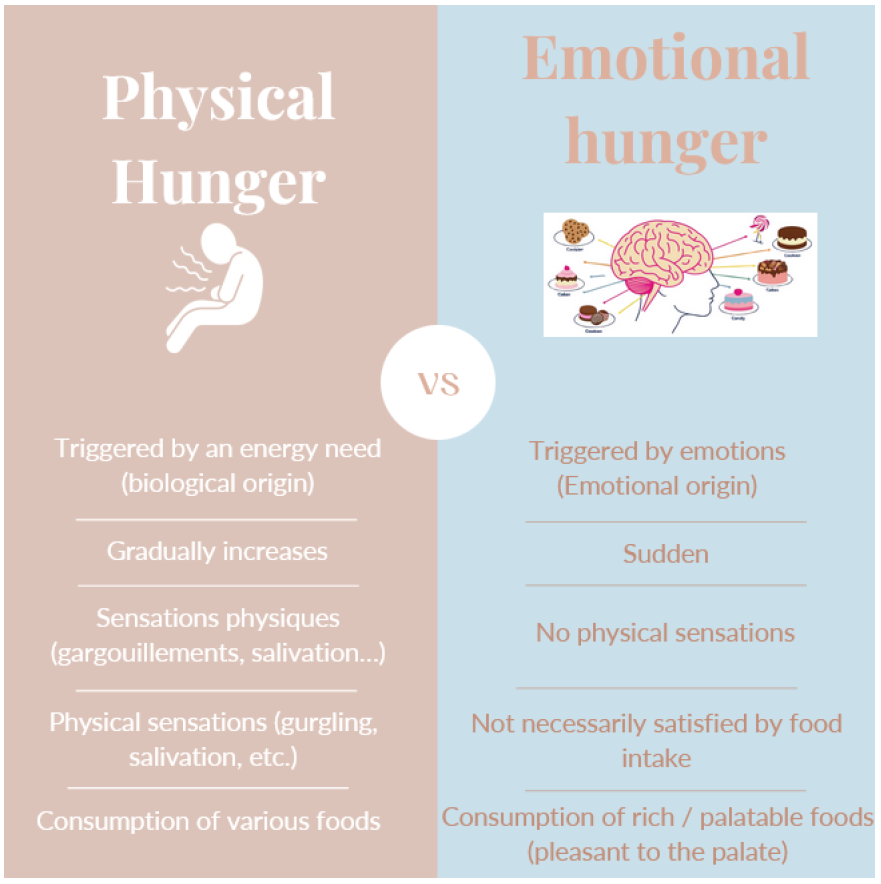

Why?
Emotional hunger is generally used to compensate for emotional feelings by eating. It can induce temporary relief, leading to renewed episodes of compulsions following negative emotions.
One study suggests that the interaction between emotions and food has become stronger with the increasing availability of food, and the growing influence of hedonic processes* in our food choices.
*linked to pleasure
Who?
Regulating emotions with food is a common behavior, which is not necessarily problematic. This emotional management strategy becomes worrying when it becomes widespread, less effective and, above all, when it generates suffering.
Emotional eating called “pathologic” is often accompanied by negative emotions such as guilt, shame, stress, feelings of powerlessness and low self-esteem. It can also lead to physical symptoms, such as digestive problems or nausea.
Studies estimate the prevalence of emotional eating in the general population at around 45% (these figures may vary depending on the measurement tool used). In a population of overweight or obese people, the prevalence of emotional eating has been estimated at 60%.

The causes
There are many factors that can contribute to emotional eating, the best known of which are chronic anxiety/stress, restrictive diets and difficulties in managing emotions.
Anxiety/Stress
Stress and anxiety can encourage emotional eating.
The increased consumption of energy-rich foods, often sweetened or ultra-processed, is then used as a adaptation mechanism in the face of negative emotions.
This dietary response, while soothing in the short term, can lead to feelings of guilt, unhappiness and sleep deprivation, which in turn fuel stress and snacking cravings.
→ According to one study, over 45% of adults say they eat more when they’re stressed, even when they’re not hungry.
Restrictive diets
Restrictive diets are often based on rigid mental rules, also known as cognitive restriction (e.g. “I don’t eat chocolate, it
makes me fat”). This excessive control encourages guilt, stress and the need for comfort, which increases the risk of emotional eating.
The more we deprive ourselves, the more we crave, generating
frustration and fuelling a vicious circle between restriction and emotional eating.
Difficulty managing emotions
Some people have difficulty identifying, expressing or managing their emotions: this is known as alexithymia. These difficulties may be closely linked to emotional eating, as they limit the ability to cope with stress or negative emotions, thus favoring the use of food as a means of regulation.
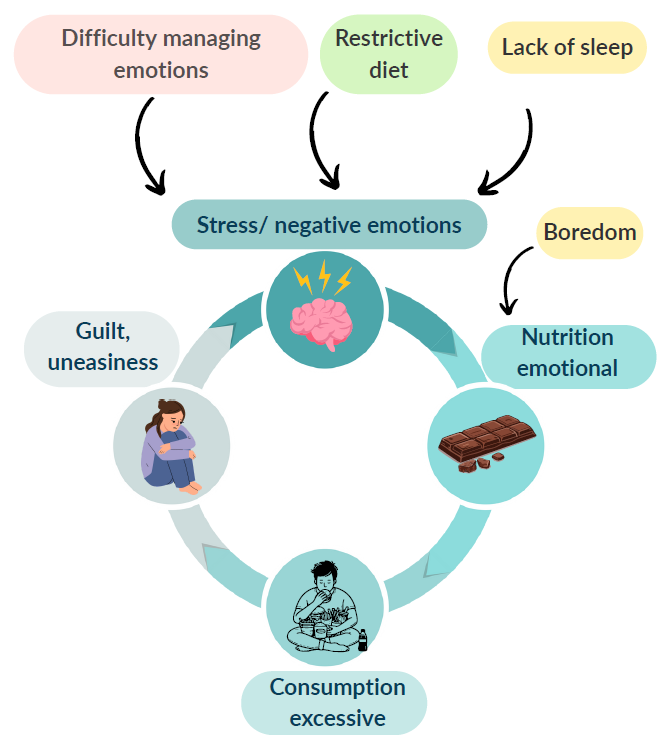
The consequences
In the case of emotional eating, the foods consumed are generally fatty, sweet, salty, high in energy value and therefore often ultra-processed, which can have harmful consequences for health by increasing the risk of :
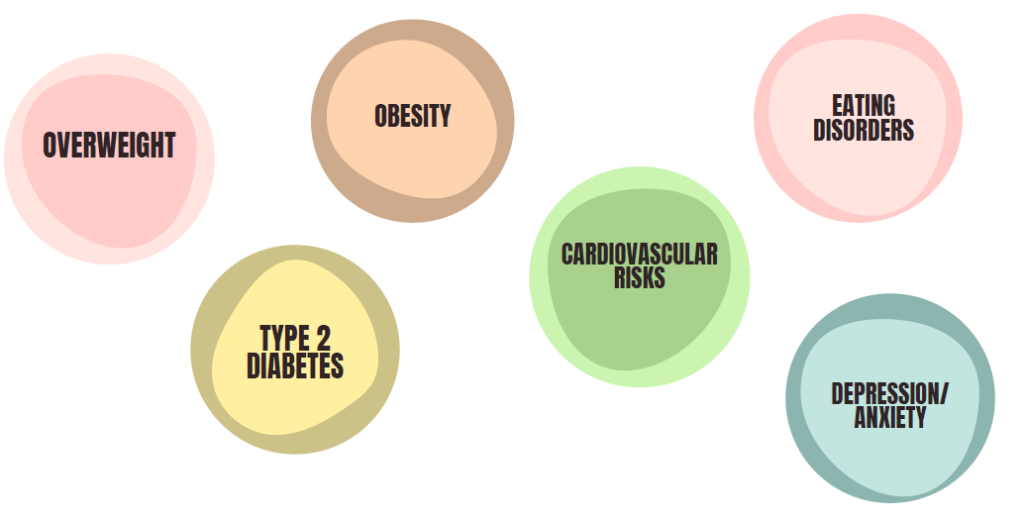
The consequences of emotional eating can also sometimes be its causes, contributing to a vicious circle that can be difficult to break. The underlying mechanisms remain poorly elucidated, and further research is needed to better understand the associated pathophysiological mechanisms.
Tips to reduce emotional eating
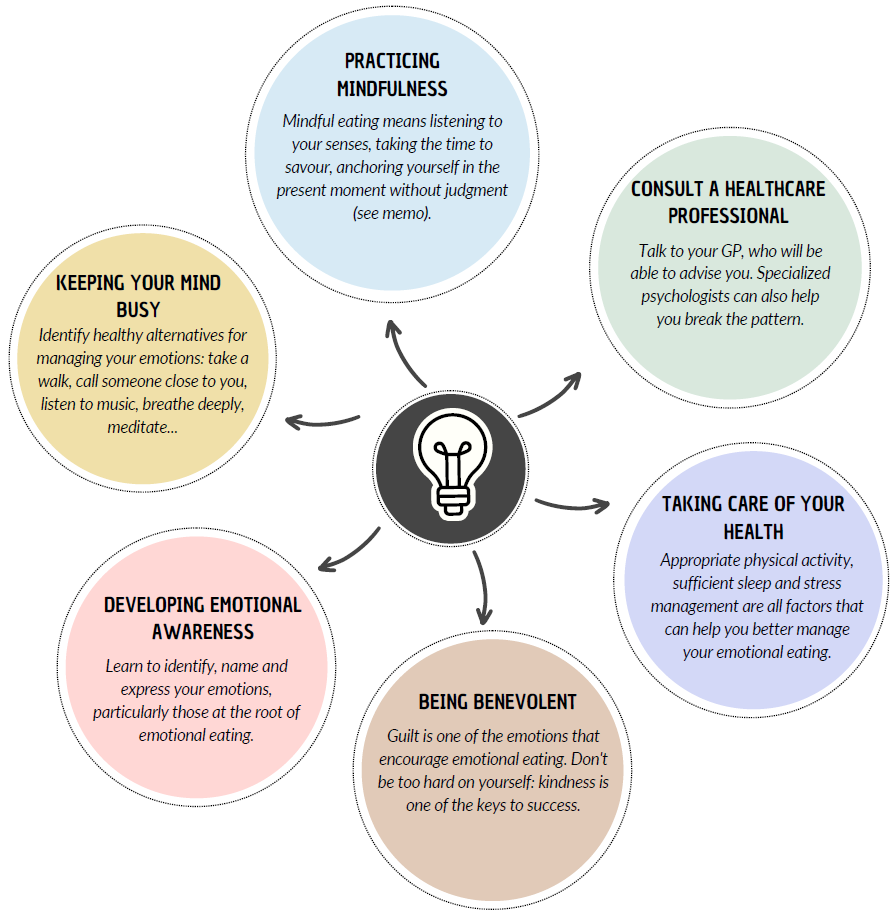
Conclusion
Emotional eating concerns a large proportion of the population. It becomes a problem when it is frequent and a source of suffering and/or discomfort.
Identifying the associated emotions can help you to deal with them more effectively, and to implement appropriate strategies. In the event of difficulty, we recommend that you consult a health professional.
And above all, remember to be kind to yourself!

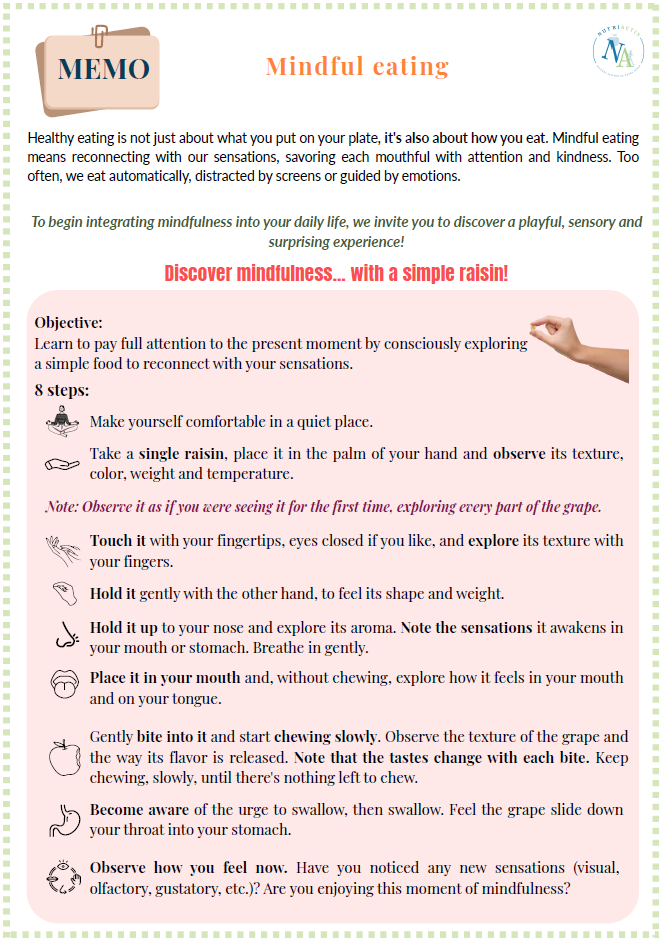
-
When our emotions dictate what we eat
pdf – 2 MB